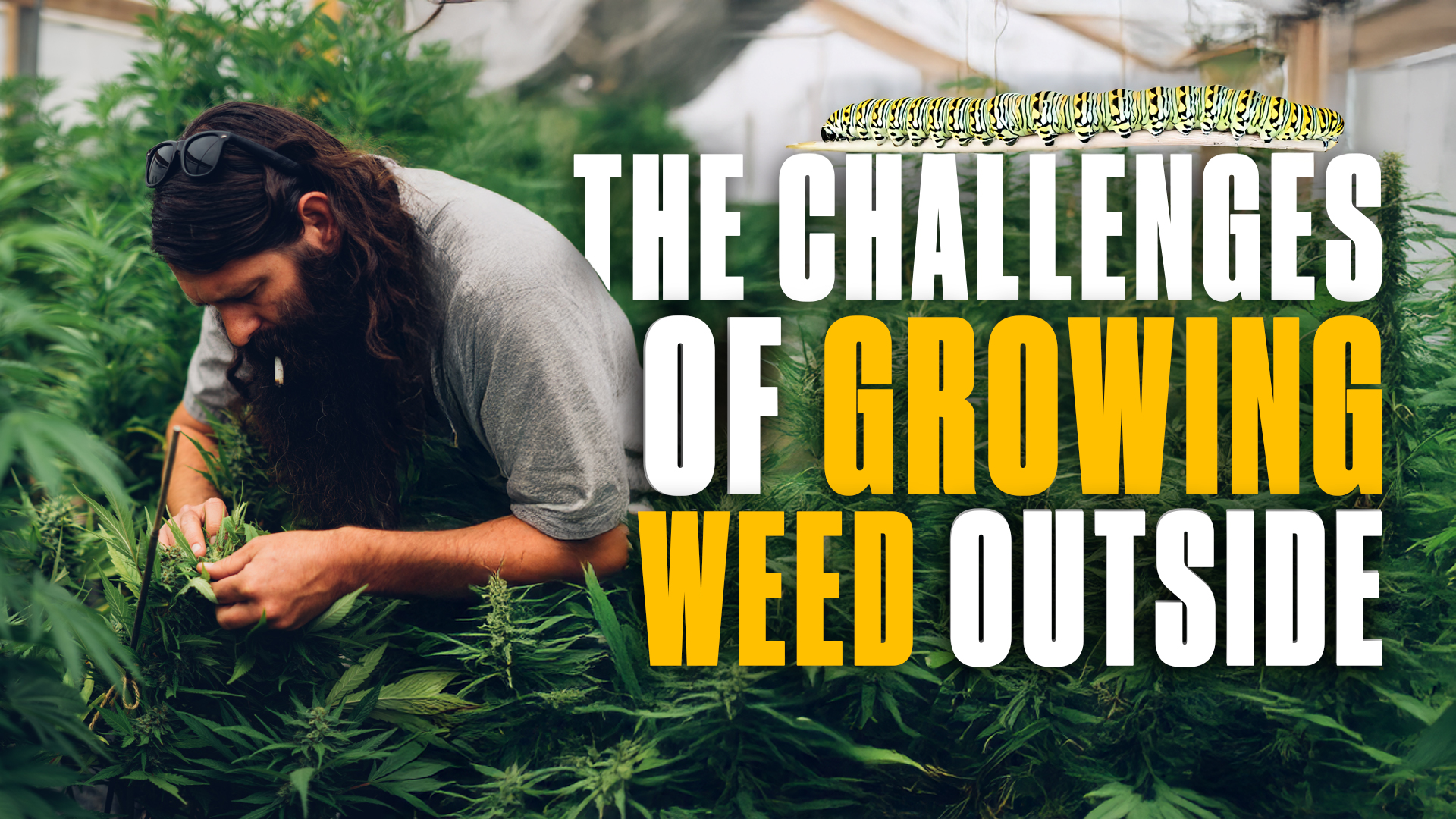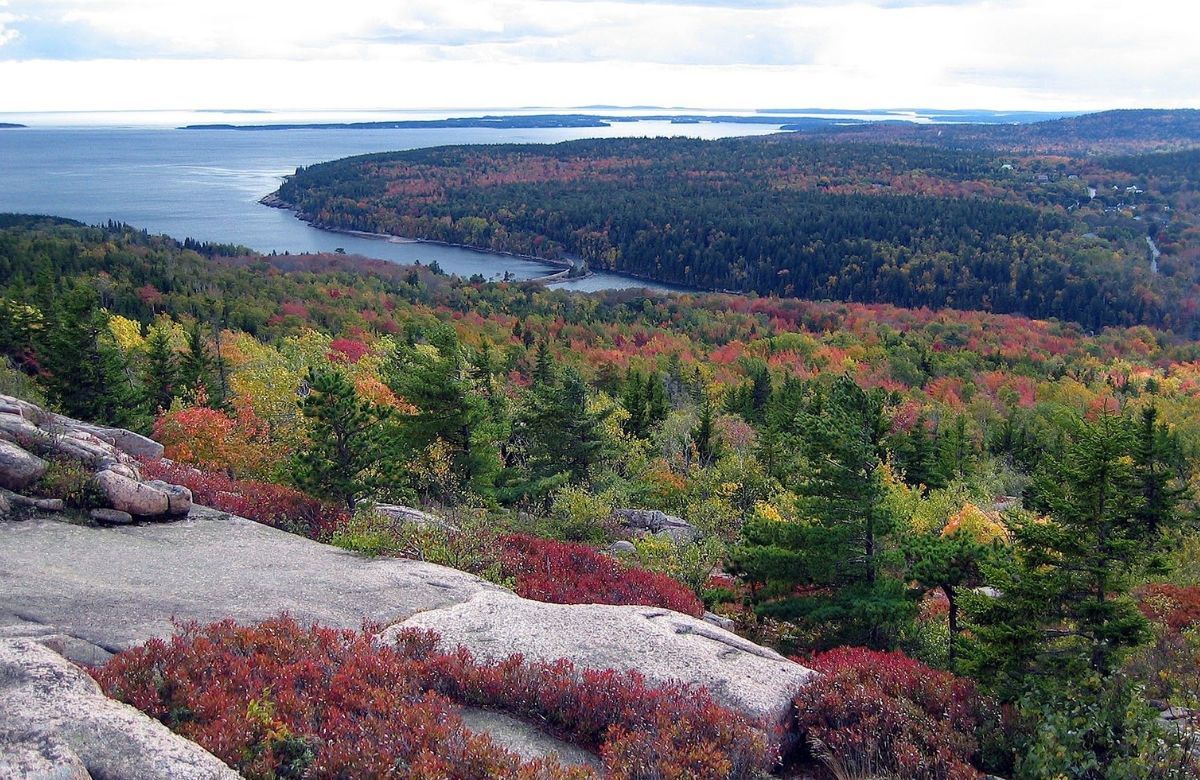Smoking Weed is NOT Addictive
Topics
“Synganic” Cultivation and the Evolution of Cannabis Growing 0:30
Should Everyone Use Cannabis? Freedom of Choice 5:38
Ed’s Experimental Growing Techniques for Small Spaces 12:36
Transcript
Follow along using the transcript
Kyle: If there's a Mount Rushmore of cannabis, our next guest's face would be carved in stone. He's a prolific author, legendary grower, and one of the most respected voices in cannabis cultivation. Known as the guru of ganja. It's a privilege to have Ed Rosenthal with us today. Well, everybody, we have an extremely esteemed guest here and a very old friend of mine. Of course, Ed Rosenthal. Hi Ed.
Ed: Hi.
Kyle: Sometimes when people introduce me, I look around and go, "Where? Where's Kyle?" We're here at the Emerald Cup, and we're in Oakland. Usually, we'd be having this up in the country. I'm curious — do you think the scene is good?
Ed: People are having a good time and sharing information, new ideas. It's fun.
Kyle: Yeah. I'm having a good time. Out of the 20 Emerald Cups, how many would you say you've been to?
Ed: You know, I can remember some of what I did last week, but beyond that, it's like looking at the East Coast somewhere.
Kyle: A handful, more than a handful. Okay. So, in that time, a lot of things have changed with cannabis cultivation. There's a new term out there. Well, it's probably not new — nothing's new, right? Have you heard this term, "synganic"? No? Interesting. Well, let's talk about this for a second. The kids out here have come up with a new amalgamation of synthetic and organic cultivation, and they call it "synganic."
Ed: That's a new one. Yeah. I mean, people say, "I grow organic," but then they put in this 2-5-7 or calcium nitrate or whatever, you know? So they've always been doing it; they just haven't admitted it to themselves.
Kyle: So, nothing's really new in cannabis. Everything's just a bright face. But there are a lot of new strains. There are new strains coming out all the time. Do you think that cannabis is getting better, staying the same, or getting worse?
Ed: First of all, there's a lot more choice. Secondly, we have a lot of science, so we know what's going on. For instance, 20, 25 years ago, customers didn’t know how much THC was in there or what the major terpenes were. Now, the customer has more information for the most part, and I think that's really good. I think people are more concerned about hygiene than they were, especially because of the new fungi and viruses and things. I have nothing negative necessarily about people growing what, at one time, people would call "mass cultivation," as long as they give the plants the conditions the plants really love, cater to the plants, and use all their expertise to do the best thing for the plants.
Ed: Also, I think there are new techniques of growing that make it better for the cultivator too. They don't have to harvest seasonally, for instance. With auto flowers, they can harvest throughout the season. So, I think everything is getting better, both for the consumer and as far as cultivation is concerned.
Kyle: So in your decades—I'm not going to put a year on it because I'll just be wrong
Ed: I’ve been in this for over three years now.
Kyle: Three years? You mean 30. Thirty, yeah.
Kyle: So, you’re known to the world as being an educator, something a little bit of what I do. Over the years that you’ve been writing all these books that you’ve been writing and teaching people and educating, has your approach to educating or teaching people changed at all over the years?
Ed: I think more direct is.
Kyle: Don’t beat around the bush?
Ed: I’m just more direct. I think sometimes you don’t need a lot of words to get your thought across.
Kyle: Okay, I see what you mean. Simple, simple direct answers as opposed to trying to describe the whole process.
Ed: Well, even if I’m describing the whole process, what I’m trying to do it, in such a way people aren’t put off by jargon or by some assumption that they have prior knowledge. Keeping it direct works better for the uh listener.
Kyle: I often have said it, and it’s even—I didn’t got to say it in print—that I believe that every human can somehow benefit from the cannabis plant. Do you think that everybody should smoke cannabis?
Ed: No. But I think if people don't like it, don't like the feeling some reason have some sort of negative effect on them then they shouldn't use it.
Kyle: Do you think everyone should try it?
Ed: If they want to.
Kyle: Okay.
Ed: My big thing is everybody should be allowed to use it. Not that everybody should use it, but everybody should have the choice as to whether they want to use it or not.
Kyle: You can be an advocate without being a pusher, right?
Ed: I know people who really love cannabis but can’t use it because they get physically ill from it.
Kyle: Yeah, yeah, I do too. I know some people who are extremely passionate about the plant, and they don’t use it. And I have a hard time completely relating to that. But everybody has a right. I think most people can pretty quickly figure out for themselves if smoking marijuana is for them. You know, it’s the other things, you know, where like maybe taking, ingesting a little bit of it or things like that, I think is much less subjective. And that, you know, I sometimes try to suggest to people that they try eating a little bit when they say that they don’t enjoy smoking it because it’s not going to hurt them. They can still say, oh, I’ve tried it, they don’t like it. But if you haven’t tried it, so I was just curious if you encourage people that haven’t tried it, like maybe for sleep or things like that, do you encourage people to try it if they haven’t tried it before?
Ed: I don't care whether somebody uses marijuana or not doesn't make any difference to me.
Kyle: Right. But you do. You are, you are passionate about people growing it. People—you still only want them to do it if they want to.
Ed: You know, a lot of people don’t want to grow it. They’d rather get it some other way.
Kyle: Sure. But sometimes you give a speech or you give a talk, and you’re not there, so you don’t know if everybody in the audience wants to use it. But you still give a speech that says, I think you should grow it for these reasons. And sometimes it might be appropriate—you meet somebody who has a mother or father or grandfather who has an ailment, and, you know, you would never recommend that they should.
Ed: I might say, well, perhaps you should try this, but if they say, "Oh no, I don’t want to use it," I’m through with arguing with people.
Kyle: Of course, I didn’t mean that.
Ed: But I will tell you one thing—what you have to warn people is that using marijuana may not be addictive, but growing it is. I know any number of people who used to use marijuana but continued to grow it.
Kyle: Right.
Ed: One person I know is growing it for his children. He used to use it; he doesn’t like it anymore, so he doesn’t use it. He just grows it.
Kyle: There were only two times in my adult life when I didn’t grow. It was when I took a job at High Times magazine. When I first took my job at High Times magazine, I gave up growing. And the first three years of marriage—that was the only time I didn’t grow. Well, I gave a couple of years to just have peace and quiet. And then I moved the garden.
Ed: No, I gave up the marriage by the second day. So, I think we’re going to get an annulment now.
Kyle: Okay, so we’re learning where the passion really lies here.
Ed: Well, I wouldn’t want to have as a partner somebody who doesn’t appreciate it.
Kyle: Oh. She smoked my weed. I just didn’t find a good place in the house for it yet. She smokes my weed, Suszie. We just hadn’t found a good place in the house to grow it yet, so that took a little while.
Ed: You’re in L.A., right?
Kyle: Say what?
Ed: You’re in L.A., right? You have great Thai restaurants there, pull out the kitchen appliance.
Kyle: I mean, it is almost more important than cooking, right?
Ed: Think about it. You need a microwave and a couple of sophisticated hot plates.
Kyle: I’ve got to tell you—as much as I love weed, I love cooking too. I really love cooking. So, you know, you and Jane have to come down sometime.
Ed: We’re actually cooks because we know exactly how to use a microwave. Look, look, it’s like this— No, no, it’s like this. Let’s say you needed a medical operation. Would you do it yourself?
Kyle: No.
Ed: You’d go to somebody who’s professional, trained, and all that.
Kyle: Sure.
Ed: Why would you have an amateur cooking? You see.
Kyle: I agree with you when it comes to plumbing, when it comes to fixing the toilet, when it comes to certain, you know, house repairs. But when it comes to cooking, I think that somebody who can’t cook a little bit should be excommunicated from the village. I think everybody who lives in the village has to be able to cook at least one good meal.
Kyle: Dr. Ruth couldn’t cook.
Ed: Oh, good answer.
Kyle: You know she just died.
Ed: Yeah, I know. We never heard, but I saw a picture, and it said that she didn’t cook at all.
Kyle: Really? Well, that’s a good comeback, Ed. I admire you for that.
Ed: Well, Jane and I are experts at the microwave.
Kyle: Hey, look, as long as you know what you’re good at, that’s all that matters.
Ed: Here’s something else I have to say about cooking. You know, people always get their kitchens redone, you know, and stuff like that. The more expensive your kitchen, the less likely you are to cook—especially if you live in L.A.
Kyle: Good restaurants.
Ed: Jane and I moved down to L.A.; we live in Thai Town.
Kyle: You know what? Maybe people would watch if we just did a restaurant review show. We could do that. Sit down with a bowl in our hands and have them bring us food. That sounds like fun.
Ed: Right. I would do that. We’ll bring Jason King in too.
Kyle: Oh, and it’s always fun talking with you. I’m really glad you’re here, and I’m really glad you’re my friend. The cannabis community is really lucky to have you.
Ed: Are we going into cultivation?
Kyle: Cultivation? We just did. I tried to get you to talk about cultivation.
Ed: So, I’m going to show you something. I’m working with farmers in Ontario, Canada, using new methods of cultivation.
Kyle: New? Really new?
Ed: Yeah. Doing very dense planting—perhaps 100,000 seeds per acre. They’re all feminized and growing the plants like that.
Kyle: Quick harvest, fast, high yield.
Ed: They have a single stand, but we’re doing it with auto flowers.
Kyle: Do you have a specific strain in mind?
Ed: I can do it with any strain, with virtually any strain. But, you know, I was showing you some pictures before, and you might have noticed the plants weren’t trimmed, and they had all different formations. Some grew straight up with a single stem, and some had profuse branching. Some had smaller branches.
Kyle: No topping?
Ed: They weren’t topped, they weren’t pruned, they weren’t manicured. With three of them, I lollipopped, but beyond that, no, I did nothing because I wanted to see the formation of the plant before deciding how to work on that kind of plant.
Kyle: Sure.
Ed: So that was part of the experiment. And then, when the plants got too tall, as you recall—I’ll send you pictures you can add to this—we sent the plants shooting up by just tipping them on their side and following the tropism against gravity, they grow up. So the plants took a sharp left or right turn, so to speak. Those are some of the experiments that I’ve done. I think people will be interested in that. You know, you don’t need a large area to do an experiment. All you need is a few plants that you’re experimenting with and a few controls. You can do it in a very small area. When people say, "Oh, I don’t have the room to do it," you can do it with your crop, and it’s fun to learn.
Kyle: Interesting. Well, on that note, Matt is telling me it’s time for us to wrap it up.
Ed: Okay. Alright, bye everyone! —
[Off-screen]: oh, we got yelled at for smoking.
Ed: Say what?
Kyle: We did.
Ed: By who?
Kyle: Oh, good! See, we got yelled at for smoking. Isn’t that good?
Ed: Yeah, yeah.





